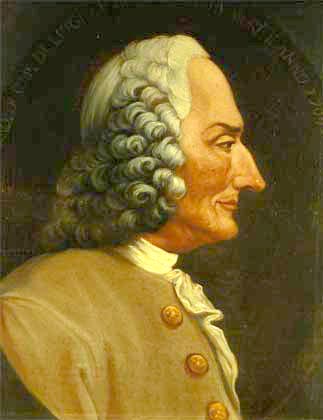Jean-Philippe Rameau Biography - A Very Quick Guide
Artist:
Jean-Philippe Rameau
Born:
September 25, 1683
Died:
September 12, 1764
Jean-Philippe Rameau (September 25, 1683 - September 12, 1764) was one of the most important French composers and music theorists of the Baroque era. He replaced Jean-Baptiste Lully as the dominant composer of French opera, and was attacked by those who preferred Lully's style.
Rameau's father was the organist at the cathedral of Dijon, and had his son praticing harpsichord at the earliest age possible. However, Rameau began his studies in the field of law before deciding that the study and composition of music was his true passion. He spent much of his youth in Italy and Paris, and for a time followed his father's footsteps as organist at Clermont Cathedral. It wasn't until he reached his 40's that Rameau achieved prominence in the field of composition, but by the death of Couperin in 1733 he was arguably the leading French composer of the time. From then on he devoted himself primarily to opera.
He collaborated with Voltaire on a number of operas, in particular La Princesse de Navarre which earned him the King's title of Compositeur de la Musique de la Chambre.
He is perhaps most well known for his theories regarding tonality through basse fondamentales or root notes, the idea that chords remain equivalent under inversion, described in Traité de l'harmonie (1722) and Nouveau système de musique théorique (1726).
Rameau's father was the organist at the cathedral of Dijon, and had his son praticing harpsichord at the earliest age possible. However, Rameau began his studies in the field of law before deciding that the study and composition of music was his true passion. He spent much of his youth in Italy and Paris, and for a time followed his father's footsteps as organist at Clermont Cathedral. It wasn't until he reached his 40's that Rameau achieved prominence in the field of composition, but by the death of Couperin in 1733 he was arguably the leading French composer of the time. From then on he devoted himself primarily to opera.
He collaborated with Voltaire on a number of operas, in particular La Princesse de Navarre which earned him the King's title of Compositeur de la Musique de la Chambre.
He is perhaps most well known for his theories regarding tonality through basse fondamentales or root notes, the idea that chords remain equivalent under inversion, described in Traité de l'harmonie (1722) and Nouveau système de musique théorique (1726).
Top Pieces on 8notes by Jean-Philippe Rameau
